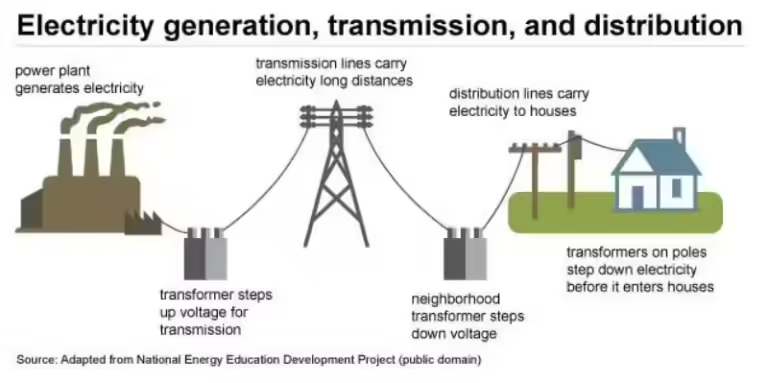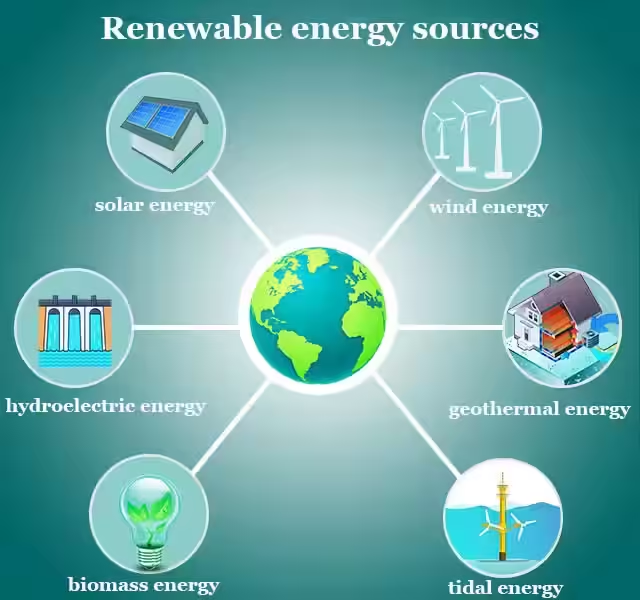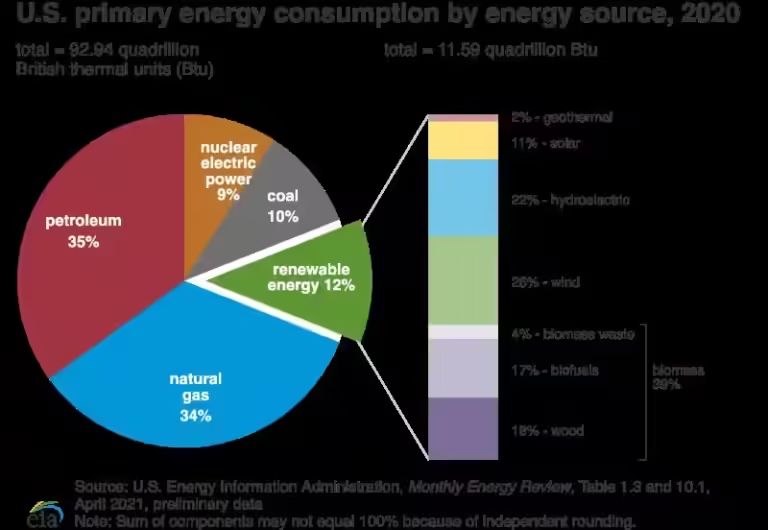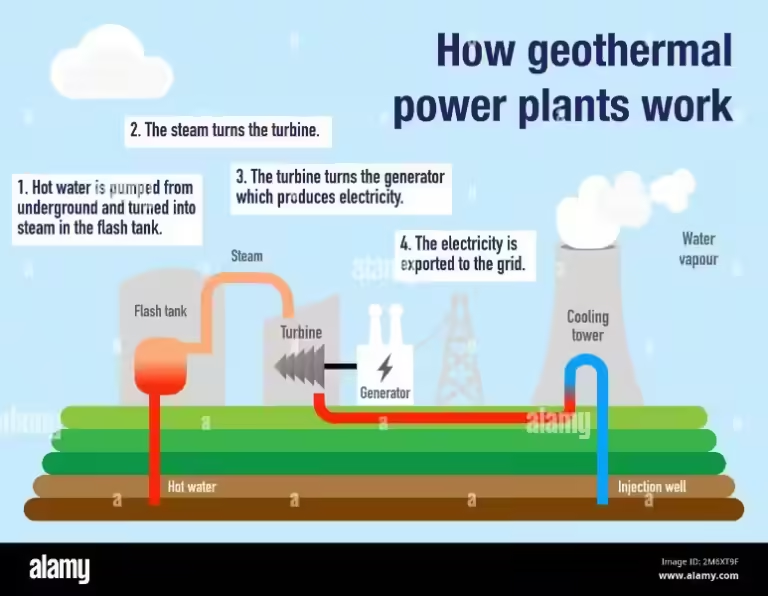Biomass Energy: A Mixed Bag of Advantages and Disadvantages
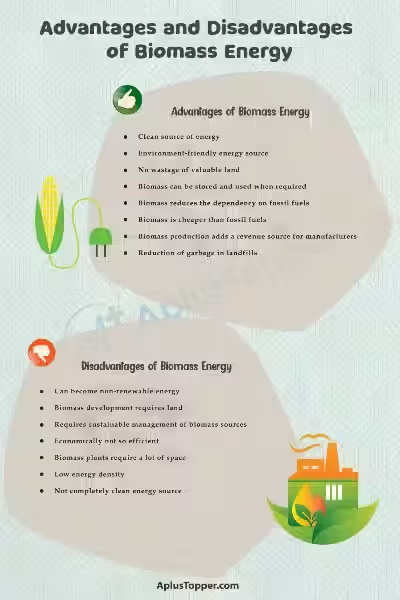
Biomass energy, derived from organic matter like wood, agricultural waste, and even animal waste, is often presented as a clean and renewable energy source. It holds potential as a valuable tool in the transition to a more sustainable energy future. However, like any energy source, it's not without its drawbacks. Understanding both the benefits and limitations of biomass energy is crucial for making informed decisions about its role in our energy mix.
The Advantages of Biomass Energy
Biomass energy offers several advantages that make it an attractive alternative to fossil fuels:
Renewable and Sustainable
Biomass resources are constantly replenished through natural processes. Trees grow, crops are harvested, and animals produce waste. This continuous cycle makes biomass a potentially renewable resource. However, responsible management is vital to ensure sustainability. Overharvesting or inefficient land use can lead to environmental degradation and depletion of biomass resources.
Carbon Neutral
When biomass is burned, it releases carbon dioxide (CO2) that was originally absorbed from the atmosphere during the plant's growth. Theoretically, this makes biomass energy carbon-neutral, as it doesn't contribute new CO2 to the atmosphere. This contrasts with fossil fuels, which release ancient carbon stored underground, leading to increased greenhouse gas emissions.
Waste Reduction and Resource Utilization
Biomass energy can effectively utilize waste materials, including agricultural residues, forestry byproducts, and even municipal waste. This reduces reliance on landfills, lowers disposal costs, and promotes a circular economy. By repurposing waste materials, we can minimize environmental impact and create valuable resources.
Local and Diverse
Biomass resources are widely available, making biomass energy production possible in various locations. This reduces dependence on imported energy and fosters local economic development. Additionally, biomass can be derived from different sources, including wood, crops, and agricultural waste, offering flexibility and adaptability.
The Disadvantages of Biomass Energy
While biomass energy offers potential benefits, it also presents several challenges that need to be addressed for its widespread adoption:
Efficiency and Energy Intensity
Converting biomass into usable energy, such as biofuels, often requires significant energy input. This energy intensity can sometimes negate the carbon neutrality of biomass energy and increase its overall environmental footprint. For example, producing ethanol from corn requires energy-intensive processes that can diminish its environmental benefits.
Environmental Impacts
While biomass is considered carbon neutral in theory, its combustion still releases pollutants like carbon monoxide, nitrogen oxides, and particulate matter. These emissions can impact air quality and contribute to respiratory problems. Additionally, unsustainable harvesting practices for bioenergy crops can lead to deforestation, habitat loss, and soil degradation.
Land Use Competition
Growing energy crops, such as corn for ethanol, can compete with food production for land resources. This can lead to higher food prices, exacerbating food security concerns, and potentially creating social and economic challenges.
Cost and Infrastructure
Developing and implementing biomass energy systems can be expensive, requiring investments in processing facilities, transportation infrastructure, and storage solutions. This can make biomass energy less cost-competitive compared to established fossil fuel infrastructure.
The Future of Biomass Energy
Despite its challenges, biomass energy remains a promising avenue for reducing our reliance on fossil fuels. To unlock its full potential, research and development efforts are essential to improve efficiency, reduce environmental impacts, and lower costs.
Key areas of focus include:
- Developing more efficient and sustainable biomass conversion technologies
- Optimizing biomass harvesting and transportation processes
- Promoting sustainable forestry practices and reducing deforestation
- Developing policies and regulations to support responsible biomass energy production
By addressing the disadvantages and fostering innovation, biomass energy can play a significant role in a cleaner, more sustainable energy future. Ultimately, a balanced approach that considers both the advantages and disadvantages is crucial for realizing the full potential of biomass energy.
Frequently Asked Questions about Biomass Energy
What are the advantages of using biomass energy?
Biomass energy is renewable, carbon neutral, reduces reliance on fossil fuels, can be cost-effective, creates revenue streams for waste producers, reduces landfill waste, supports local job creation, enhances energy security, improves air quality, offers fuel diversity, can be combined with other renewable sources, benefits from technological advancements, supports sustainable forestry practices, produces biochar, and emits lower greenhouse gases compared to fossil fuels.
What are the disadvantages of using biomass energy?
Biomass energy can be inefficient, pose environmental concerns like air pollution and deforestation, compete with food production, require significant water use, involve costly logistics and transportation, require further technological development, be intermittent, have social impacts, necessitate expensive infrastructure, create challenges in waste management, potentially cause air pollution, compete with other renewable sources, pose food security concerns, and raise animal welfare concerns.


